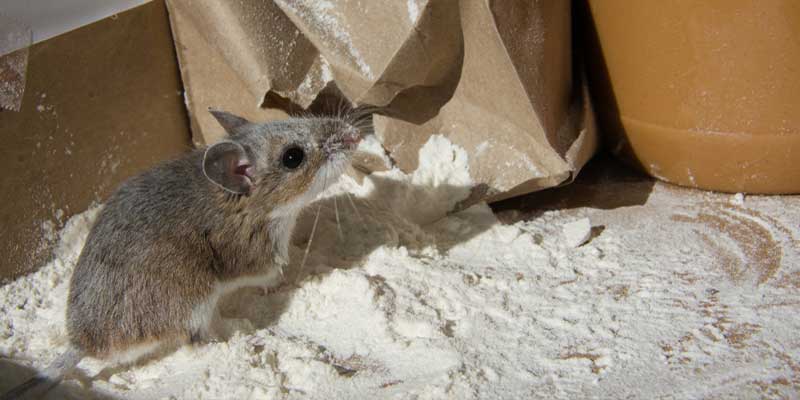
In a word: quickly. While they may seem cute and quirky in the cartoons, mice are actually nuisance pests that can cause a lot of damage to your home, not to mention spread disease. Mice are rodents that seek out warmth and shelter in homes, where they will proceed to make nests in out-of-the-way places, leave their droppings, and make lots of babies.
Once the breeding starts, it will become a lot harder to get rid of them since they multiply at an alarming rate. Nothing is off limits for them: furniture, appliances, wiring, insulation, and clothing. They’ll eat your food and your pet’s food as well, all while contaminating it with the diseases they carry in their urine and droppings. Did you know mice even transmit lice? At the first sign of rodents, call an expert Mice exterminator in Boise that specializes in rodents in Boise, ID.
The Reproductive Cycle of Mice
With a gestational period of 19 to 21 days, female mice get pregnant five to 10 times a year, birthing litters of between three and 14 pups. The average litter size is about six to eight pups. If you do the math, one female mouse may produce between 32 and 56 pups in just one year. They need no break in between giving birth and reproducing again; they can start immediately after having their litters.
This means new litters can be on the scene in just 25 days. Even female baby mice can begin reproducing at six weeks, producing about 10 litters a year. Let’s break it down this way to further illustrate how quickly they can reproduce: even if just two mice got into your home, they could produce 60 pups in one year. About 21 to 30 of those new mice are female, which means they can have their own babies within a month. Fast forward a year and that translates to 5,000 mice in that year alone.
Signs of Mice
Mice may breed quickly, but they’re also adept at staying hidden to avoid detection. Here are some signs of their presence that you will want to be aware of:
- Scratching sounds in the walls
- Grease marks
- Weird odors
- Bars of soap with gnaw or scratch marks in them
- Scratch or bite marks on furniture or anywhere else
- Droppings
- Urine pillars
Lifespan of Mice
A mouse’s average life-span in the outdoors is one year, but in your house they can live two to three years. So while you may think you could wait for one mouse to die, you need to consider all their babies, and their babies, and their babies, etc.
In the wild, mice play an important part in the food chain. Large birds eat them, and mice eat insects. While they are a necessary part of the circle of life outdoors, they have no place inside your home.
Boise Mice Exterminator & Pest Control
Call our Boise pest control experts if you see any signs of mice activity. We will give you a free quote when you contact us at 208-600-8734. Professional Mice and rodent exterminators for Boise and Meridian, Idaho areas.



